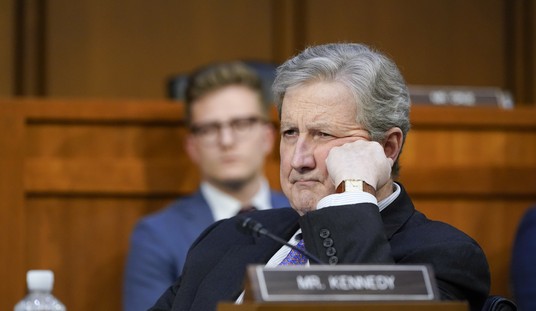Okay, this is going to be a weird one, but just bear with me a moment. This story is actually interesting from both a free speech and law enforcement perspective.
In 2019, Dhillon Shane Webb was arrested for violating Florida’s obscenity law. The charges were later dropped, and he filed a lawsuit against the city for his arrest. Now, the jury has issued a verdict in his case.
Here’s how the arrest went down:
The 23-year-old Lake City resident was driving along U.S. Highway 90 last Sunday when a deputy from the Columbia County Sheriff’s Office noticed his “I eat ass” bumper sticker. The sticker, the deputy concluded, violated the state’s obscenity law. After Webb refused to remove part of the sticker to censor the word “ass,” citing his First Amendment right to free speech, the deputy arrested him and charged him with “obscene writing on vehicles and resisting an officer without violence.”
On Thursday, the State Attorney’s Office said that it would not prosecute Webb for either charge. Any prosecution, the office determined, could be met with a valid First Amendment defense.
However, the Florida resident’s lawsuit against the city did not fare so well:
But the U.S. District Court for the Middle District of Florida ruled yesterday that the case is not so cut and dry, awarding qualified immunity to [Deputy Travis] English and thus dooming the suit Webb brought against him for allegedly violating his free speech rights and for falsely arresting him.
“While Webb denies the Sticker was in fact obscene, in interviews he repeatedly acknowledged the sexual nature of his Sticker,” wrote Judge Marcia Morales Howard in Webb v. English, “albeit couched as an attempt at humor, showing that the notion that an erotic message was more than hypothetical—it could reasonably be viewed as the predominant message being communicated.” She added that “if the Sticker depicted a sexual act, it would be protected speech under the First Amendment only if it had serious literary, artistic, political, or scientific value.” English, as well as Corporal Chad Kirby—who via phone agreed Webb should be arrested—thus can’t be held liable over their subjective determination and the subsequent arrest.
Yet the law in question—Fla. Stat. § 847.011(2), which prohibits “any sticker, decal, emblem or other device attached to a motor vehicle containing obscene descriptions, photographs, or depictions”—is unconstitutional on its face, according to Eugene Volokh, a professor of law at the University of California at Berkeley. “This entire provision is therefore unconstitutionally overbroad and thus invalid on its face, and thus can’t be applied even to possession of obscenity in public,” Volokh argued in May 2019.
So, in essence, the officer who unjustly arrested Webb will not be held accountable for his actions because of qualified immunity, which has shielded many members of law enforcement from punishment.
Qualified immunity is a legal doctrine that protects government officials, including law enforcement officers, from personal liability for their actions performed in the course of their official duties, as long as those actions do not violate “clearly established” constitutional rights. It was designed to shield public officials from frivolous lawsuits and allow them to perform their duties without fear of constant litigation.
To overcome qualified immunity and hold an official accountable for their actions, a plaintiff must show that the official’s conduct violated a constitutional right that was already clearly established by prior court decisions. This has led to criticism that qualified immunity often shields government actors from accountability even in cases in which they have violated people’s rights, making it challenging for victims to seek redress for civil rights violations.
But is the right decision in this case? Should the officer not have been held accountable for falsely arresting someone?
Supporters of qualified immunity argue that it is essential to safeguard law enforcement officers from frivolous and excessive lawsuits that may arise from their lawful actions. In the case of Deputy Travis English, he believed the bumper sticker violated Florida’s obscenity law, which potentially justified the traffic stop and subsequent arrest.
Although the charges were later dropped, proponents might argue that Deputy English made a reasonable judgment based on his understanding of the law at the time. Applying qualified immunity in this case may prevent officers from facing unnecessary legal battles when they act in good faith, believing they are enforcing the law responsibly.
On the other hand, opponents of qualified immunity argue that the doctrine often grants police officers broad protection, even in cases where they may have violated an individual’s constitutional rights. Critics contend that it can create a culture of impunity, making it challenging for victims to seek justice for civil rights violations.
In this specific incident, Webb’s bumper sticker, while provocative, is an expression protected by the First Amendment. Free speech is a fundamental right protected by the Constitution, and unless it incites violence or poses a direct threat, it should be shielded from government censorship or prosecution. The fact that the charges against Webb were dropped on First Amendment grounds highlights the importance of preserving the right to express opinions, even if they may be considered offensive or unconventional.
The First Amendment of the United States Constitution protects freedom of speech, including expressive forms such as bumper stickers. While the “I Eat A**” message may be considered vulgar or humorous, it does not advocate violence or pose an immediate danger to public safety.
Judge Howard, who presided over the case, acknowledged that Webb’s sticker conveyed a sexual message but noted that it could be interpreted as protected speech, especially as an attempt at humor. To prohibit or punish such expression would require the message to depict an actual sexual act and lack any literary, artistic, political, or scientific value. Webb’s bumper sticker, though provocative, falls within the realm of protected speech under the First Amendment.
From where I sit, I try to lean on the side of liberty in every case. If Deputy English did not understand the Constitution with which he is tasked with upholding, and it resulted in his falsely arresting someone, then he should be held accountable. Indeed, without qualified immunity offering such broad protections, it would force members of law enforcement to fully understand the laws they enforce.
While Webb’s sticker was offensive, it does not warrant being arrested and thrown in a cage or having money stolen from him. This is only one of several cases in which police officers falsely arrest someone without facing consequences. If we want a better justice system, there must be accountability for those who abuse their authority.












